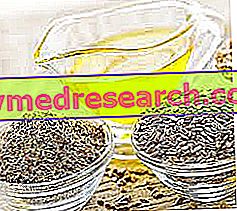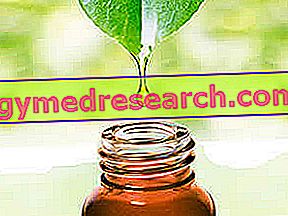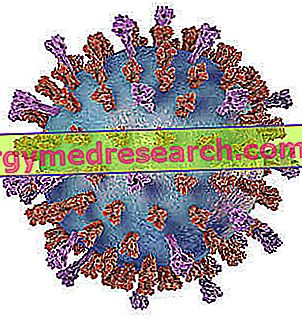Constipation: What is it?
Constipation, also called constipation, is a condition of physical malaise that affects the act of evacuating the stools.

Constipation mainly affects women and the elderly; it can be associated or aggravated by various diseases / conditions * and cause parallels (hemorrhoids, fissures, rectocele, etc.).
Furthermore, we recall that chronic constipation is associated with a qualitative and quantitative deterioration of intestinal bacterial flora, slag stagnation and therefore an increased risk of intestinal malignancies.
Treat, EMTP
Constipation: When is it curable and how can it be cured?
More than "care" it would be correct to speak of a "remedy"! However, to reduce the discomfort caused by this symptom it is NECESSARY to eliminate its root cause.
Possible diseases / conditions that can cause constipation (or aggravate it)
- diabetes
- hypothyroidism
- intestinal adhesions
- systemic dehydration
- tortuosity of the colon
- anatomical alterations
- allurement
- unsuitable supply
- excision of nerve endings
- pregnancy
- irritable bowel syndrome
- some drugs
When constipation occurs in an idiopathic way, there is a high probability that it is Irritable Colon Syndrome; on the contrary, in a SANO subject or with pharmacologically well compensated pathologies, constipation should respond positively to the dual intervention on the nutritional front (diet + supplements against constipation) and motor.
With regard to the topic "Diet and Constipation", I refer you to the dedicated article, while in the following paragraphs, I will deal in more detail with the various food supplements useful for reducing this disorder.
Nutrients and Supplements Against Constipation
Before starting, I consider it appropriate to give a brief overview of the most important nutritional components to be made in case of constipation, given that most of these are used as a substrate for the formulation of food supplements against constipation.
- Dietary fiber: also including carbohydrates NOT available, the fiber contains a series of plant molecules that the human organism is NOT able to digest.
Dietary fiber, while not constituting a real nutrient, is extremely important as:
- absorbs water and gels the feces
- feeds the GOOD bacterial flora of the colon
- once fermented it produces gases that stretch the walls of the intestine, which contract and advance the feces.
- absorption modulation
- a strong prebiotic function
- an improvement in fecal transit
- an optimization of the frequency / effectiveness of evacuations
- Water: in constipation, the stools are hard and dehydrated. This condition can be caused by a lack of systemic water or a simple lack of water in the diet; in both cases, the stools become compact and difficult to progress within the intestine. Recall that the colon is responsible for water reabsorption and that a slowing down of the transit favors, and can be favored, by the dehydration of the faeces. Furthermore, to be effective, dietary fiber MUST be accompanied by the right amounts of water; otherwise, it could also cause a diametrically opposite effect.
- Lipids: not much to say, lipids act as a lubricant for the digestive tract. A hypo-lipid diet can induce constipation more easily than another that provides a normal dose.
- Probiotics: they are the physiological microorganisms of the colon. Their deficiency or alteration can compromise the functionality of the intestine and the ability to correctly process the dietary fiber; for an accurate description, read the article dedicated to this link.
- Other nutritional components: they cannot be classified in the categories we have already described but they are molecules that (through different mechanisms) promote intestinal transit. Some of them can structure supplements for constipation and others are real drugs.
Types of Integrators
We describe the various categories of dietary supplements against constipation more accurately
Dietary fiber supplements:
They include both viscous molecules and non-viscous molecules, all with a pro-massifying action on faeces.
- The best known (and the oldest) is undoubtedly the bran, or the outer portion of the cereal kernels (wheat, oats, etc.). Unlike high supplements, it is also used as a MA food, by virtue of its high content in anti-nutritional molecules (phytic acid, oxalic acid), it is not recommended that it be taken more than 3 tablespoons per day. Compared to those that will follow (totally soluble and gelling agents) the bran is contraindicated in case of diverticulosis.
- Among the most recent, guar gum stands out, which is the flour obtained from the seeds of an Indian herbaceous plant (Genus Cyamopsis ). It is rich in galactomannans and "physically" is completely soluble (so much so that it is used in the cosmetic and food additive industry). The daily dose should be distributed over the various meals and should not exceed 5-7g at a time; it is necessary that the intake of guar gum is accompanied by abundant portions of water.
- The so-called Karaya gum is also quite new; it is the cortical secretion (or extracted from the fruits) of certain plants belonging to the Genus Sterculia . It is also used as a thickener / stabilizer and follows the properties and dosage of the aforementioned guar gum.
- We abandon the tires to learn about the mucilage ; also soluble, they are particularly abundant in Psyllium seeds ( Plantago genus). The cuticle obtained from these fruits has a real normalizing function on the feces and has a particularly beneficial effect on the bacterial flora and on the cells of the colon (for the release of short chain fatty acids); the normalizing action positively intervenes even in the case of diarrhea and lends itself to the treatment of irritable bowel syndrome with mixed symptoms.
- Of algal derivation, agar agar is less used as a supplement for constipation and is more used as a food additive (gelling agent, thickener and stabilizer) or as a base for microbial culture (laboratory biology). It is a red-colored gel that, while favoring fecal massification, does not intervene positively on the trophism of the bacterial flora.
- We then come to glucomannans, or soluble, gelling and non-digestible polysaccharides, extracted from a tuber of Japanese origin (Genus Amorphopallus ). Their daily dose is much more contained than the previous ones, about 4g a day, and if taken in a water deficiency they can play a very strong HARDENING power on the faeces (worsening constipation).
- We conclude the description of mass supplements against constipation with the most famous gelling product, or pectin . This, contained in the vegetable tissues of fruit and vegetables, despite being ingested daily with food, can be the subject of food supplementation in doses of 10-20g per day diluted in plenty of water.
Food supplements based on irritating plants
These supplements against constipation are derived from certain plant organisms that demonstrate a different laxative function than the massifying one of the previous ones. Mostly, this mechanism is linked to the presence of anthraquinones, or molecules deriving from the metabolic pathway of malonic acid. WARNING! Anthraquinones are not recommended in case of pregnancy and breastfeeding
- The first is undoubtedly the juice of Aloe (NOT the gel!), With its content of stimulating anthraquinones. These substances perform (depending on the type of specific anthraquinone) a more or less irritating action on the mucosa, which induces an increase in intestinal transit. Obviously, the side effects of a possible excess, or chronic intake, are not negligible (dehydration, electrolyte imbalances, psychological dependence on the product ...).
- Less concentrated and considered a real phytocomplex, the drug based on leaves and dried pods of senna (Genus Cassia ); also rich in anthraquinones, it represents a powerful irritating laxative that is activated only in contact with the intestinal bacterial flora (sennosides); moreover, the high content of reina (typical of the senna), facilitates the release of water by the colon. The dosage is to be evaluated based on the form of intake, as the side effects may be different.
- Then follows the cascara, or the bark of an American tree (Genus Rhamnus ); it also exploits the stimulating laxative mechanism of the two previous ones (irritant anthraquinones), but with a slightly milder stimulating efficacy. The dose of intake (to be contextualised occasionally) is around 2-4ml of extract before sleep.
- Also the Frangola (Genus Rhamnus ) contains good percentages of irritant-stimulating anthraquinones; as it is deductible, it exploits the same mechanism and can manifest the same side effects. Both in the form of an herbal tea and in the form of an extract, the dose of its anthraquinones should NOT exceed 30mg / day. NB . The fresh vegetable form induces vomiting.
- Finally, but not less useful, rhubarb (genus Rheum ). This, in addition to being an excellent phytocomplex, in small doses promotes digestion and is cholagogue (beneficial for the liver); over 4g at a time, however, thanks to the well-known anthraquinones, it can beautifully trace the function of the products listed above. For the most delicate action, rhubarb is considered the most suitable for prolonged treatment against constipation.
Lipid based food supplements
Some, like the extra virgin olive oil, are also to be considered real foods. The lipids they contain play an essentially lubricating function, however, the most effective oil to use against constipation is undoubtedly the castor oil (Genus Ricinus ). This fatty liquid, being largely made up of triglycerides of ricinoleic acid, is extremely irritating to the colonic mucosa and in addition to its lubricating function it shows some irritant-stimulating activity.
Remember that the castor seeds from which it is extracted contain different toxic or harmful molecules, which is why the oil must not be taken with systematic frequency or important doses (for the adult, it is better to stay between 15 and 50ml / day) ). Furthermore, castor oil is FORBIDDEN in pregnancy as it causes powerful uterine contractions.


